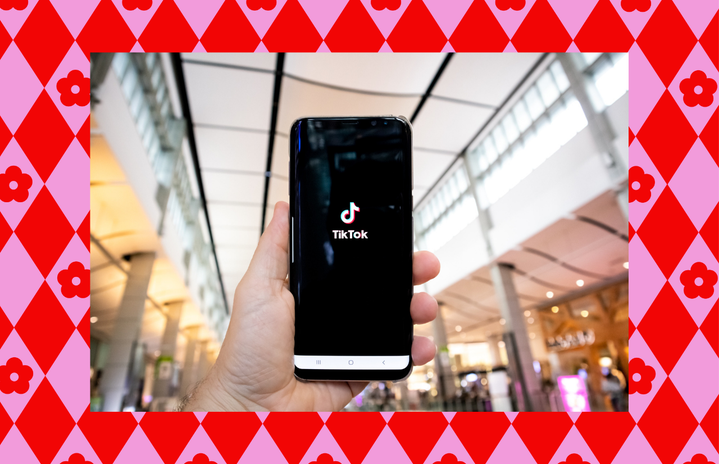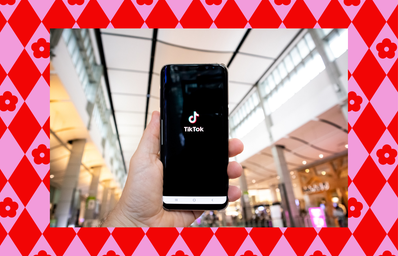Over a two-month period in 2021, TikTok removed over 80,000,000 videos that violated its community guidelines. Over 90% of these videos were taken down by the app within only 24 hours of being posted, many without even being reported by users. Why? The reason is simple: the vast majority of these videos were removed because they contained specific TikTok forbidden words and phrases caught by the algorithm, not necessarily because of their content — or at least, that’s what users think.
When endlessly scrolling on TikTok, you’ve probably noticed that some users speak in a code when discussing explicit content — using “seggs” instead of “sex,” for instance — to avoid being one of the millions of videos that is cherry-picked and removed from the app daily. Due to TikTok’s controversial history of censoring and shadow banning, creators have had to take matters into their own hands, successfully curating TikTok’s second digital language with secret euphemisms and slang to effectively communicate with viewers and have important social conversations.
TikTok has a long and complicated history of censorship on the app. In 2020, TikTok admitted to censoring LGBTQIA+ hashtags, including “gay,” “lesbian,” and “transgender.” The app has also received backlash for silencing Black creators’ voices and phrases of Black empowerment. In 2021, Ziggi Tyler, who is a part of TikTok’s Creator Marketplace (which is a private platform where brands can connect with TikTokers) and has over 500K followers on TikTok, found that putting phrases in his bio such as “Black lives matter” and “supporting Black success” were immediately flagged as inappropriate content. However, when the Black TikToker plugged in phrases into his bio like “supporting white supremacy,” it was not taken down.
The app has also received heat for shadow banning, which is when a user is able to post as normal, but their content is blocked or partially censored, meaning that it is largely hidden from the community. Some users don’t even know they’re shadow banned until they see significantly less views, comments, and likes on their content than usual. Typically, users are shadow banned for sexually explicit or inappropriate content — although in TikTok’s community guidelines, the app does not specify what constitutes sexually explicit or inappropriate content. Some users are shadow banned for only a few days, while others for weeks — but this can especially be difficult for those who use TikTok as their prime source of income.
And now, with TikTok quickly becoming a platform for Gen Z to discuss prominent social issues and topics, words like “sex,” which may seem inappropriate to an algorithm run by a robot, may not actually be inappropriate — meaning that shadow banning and censorship are completely unwarranted. Users may talk about things like sex positivity and sex confidence, yet these videos will still get taken down solely for having the word “sex.”
While there are some potential fixes to getting un-shadow banned, some users opt to censor themselves before TikTok can censor them so they can still talk about the things they want to talk about — and voila, the second digital language of TikTok was born. Users have strategically invented euphemisms and code words for “negative” terms that go against TikTok’s community guidelines.
Most commonly, content deemed as “sexual” is taken down on TikTok, and the app immediately flags when a user writes words pertaining to sex. The word “sex” has a variety of different spellings now on TikTok, including “seggs,” “s3x,” and “segg.” The word “porn” is another term the app typically flags, so users instead use the word “corn.”
But sexually explicit content is not the only types of videos that are taken down by the app. Videos that discuss sensitive topics pertaining to sexual harassment and assault are also removed by TikTok if certain key words are used. For instance, the word “rape” is typically flagged by TikTok’s algorithm, so users instead write “rap3.” Discussions involving suicide or death are also promptly removed, so users found another loophole, now writing “sue decide” or “unalive.”
The word “unalive,” popularized by Gen Z on TikTok, has now even become an ironic slang word. Online selling platforms like Etsy and Redbubble have even made customized hoodies with phrases like “Sometimes I just want to unalive myself.” TikTok’s second digital language formulated by creators has expanded beyond just the platform itself, transcending the app and becoming a new type of Gen Z slang.
It’s a phenomenon that no other app has quite experienced the same way TikTok has — users coming together to create a new digital language, so to speak, to host important and meaningful conversations. While some content that is flagged and removed by TikTok is truly inappropriate and harmful, much of the content that is taken down is simply taken down because words are taken out of context — the algorithm simply sees a word that it deems as “negative” and automatically removes the video. The way that Gen Z banded together and collectively took matters into their own hands not only demonstrates the grit and determination of the newest generation, but also their refusal to be silenced and censored.


